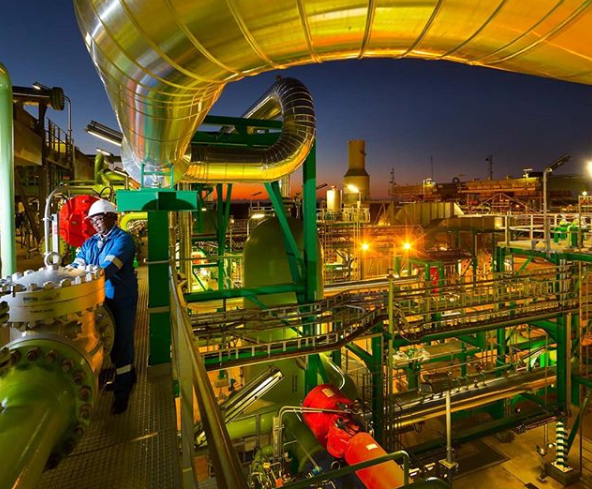
Sasol has commissioned its gas facility in Mozambique on its Production Sharing Agreement (PSA), the company announced this morning.
Work on the facility was within cost and schedule targets, despite Tropical Storm Freddy. For it to begin official operations, Sasol requires approval from the Mozambique regulator.
The South African petrochemical company said its drilling had been successful, increasing its well inventory from 19 to 24. It also reported a gas discovery in PT5-C, in southern Mozambique, which provides “closer integration to our existing facility”.
Production in Mozambique is at the upper end of Sasol’s guidance of 111-114 billion cubic feet. Output is up 2% over last year, driven by additional wells.
However, gas sales into South Africa were lower by 3% year on year, as a result of lower customer demand.
Mozambique approved Sasol’s field development plan in September 2020. The board took the final investment decision (FID), valuing the project at $760 million, in February 2021.
The company has said the project will provide gas sales to Central Termica de Temane (CTT) and Sasol South Africa.
The recent quarter marked the end of Sasol’s financial year. The company has warned of uncertainty ahead in the global and petrochemical markets for the 2024 year. Eskom and Transnet face challenges in South Africa, in addition to trucking safety worries.
In the meantime, Sasol warned of “continued pricing and demand volatility” to come.
Within the last week, Sasol submitted gas price requests to the National Energy Regulator of South Africa (NERSA). In its application, the company said it had invested more than $300mn in Mozambique gas supplies to maintain supply to 2026.
Prices need to “increase dramatically”, the company argued. In the 2022 financial year it charged 68.39 rand ($3.88) per GJ. The company applied for a price of 120 rand ($6.82) from July 2023, while NERSA said this was excessive.
The regulator should take into account the risks Sasol bears, the company said, and incentives to develop new resources. Should the price not be sufficiently attractive to sell to third parties, Sasol continued, it could convert the gas into other products at its own facilities.
The Competition Commission also took umbrage at Sasol’s pricing plans this month. The commission said Sasol had been charging too high prices for nearly 10 years. The case has been sent to the Competition Tribunal.
